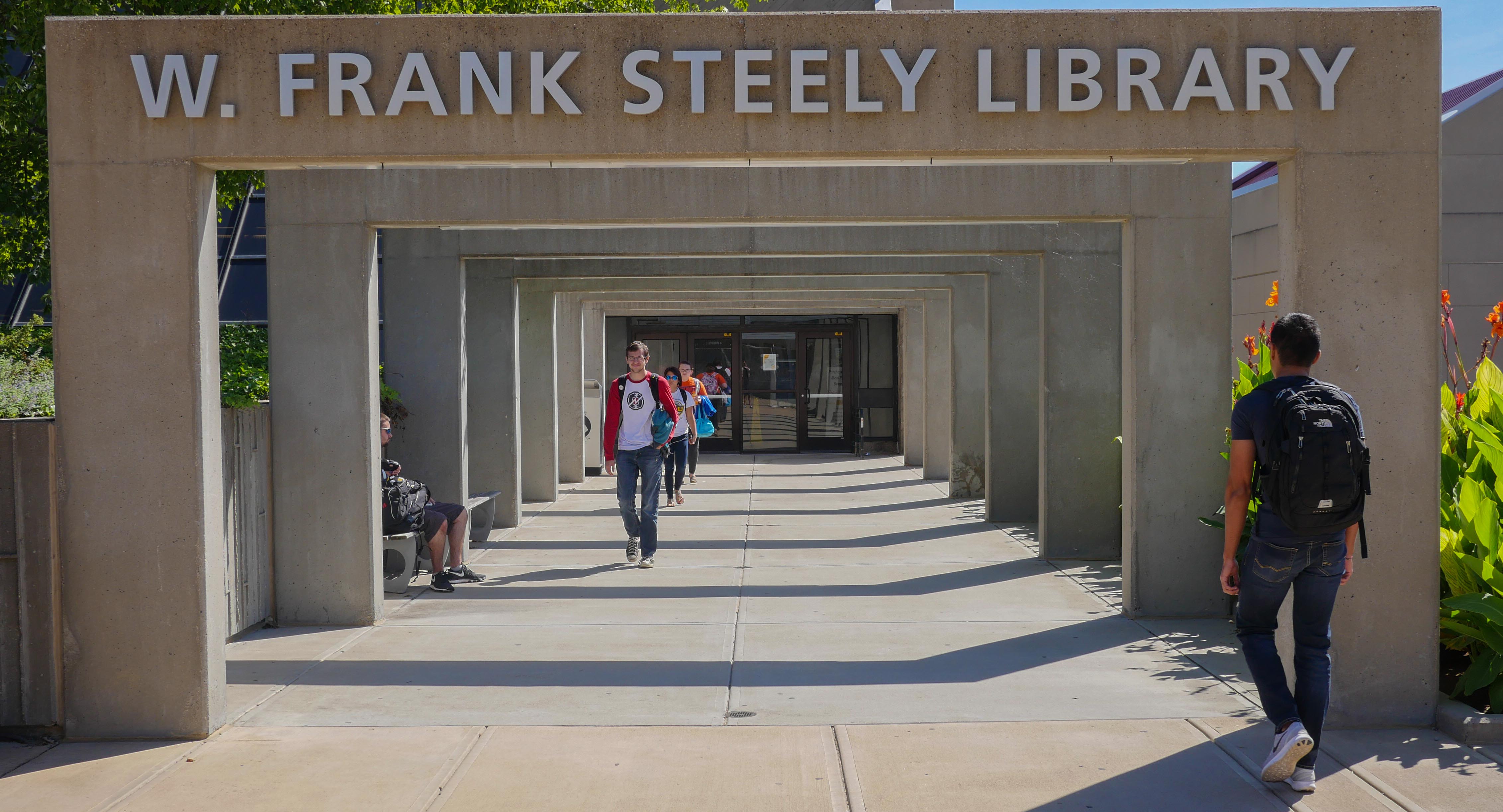Steely Library commits to academic success of students
September 12, 2016
A relatively unknown program on campus helps students find and identify credible information while teaching valuable research skills.
Steely Library’s Information Literacy Program helps students conduct academic research while enabling them to develop the skills to use that information correctly and succeed in their careers.
The program, according to Kyle Biggs, a Steely Library staff member, is centered in the idea of helping students navigate the best way to find information.
“It’s important, and that’s what the library and librarians are here for, even outside of this program,” Biggs said.
In addition, the program is there to help students not only know where to find information, but what sources are reliable and trustworthy. The program arms students with tools that help them engage with information in their academic, personal and professional lives
Jane Hammons, an Information Literacy Librarian, said that this is something students should take advantage of if they can.
“This helps students know where to go to find information they need but also be able to know what information they can rely on and trust,” Hammons said.“It’s about teaching them the difference between good and poor information, how to use them ethically, understanding the value of that information, and well, becoming information literate.”
Hammons said hundreds of students utilize the program each semester.
Victoria Hafele, a senior economic major, found the program through her economic research seminar along with her classmates. Hafele mentions the program advancing her research skills in just minutes.
“I was there for less than an hour with my class and just after our first session I already felt like I knew how to use the tools around me tens times better than going in,” Hafele said. “I feel extremely confident for applying to grad school and continuing my research for my academic future. It’s crazy how underutilized this is on campus. I had no idea what was at my hands and now I can’t stop going back. I think this is something students should take advantage of regardless if it’s with their class or on their own.”
The Information Literacy Program travels into classrooms around campus with hopes to get more students and professors on board. At the request of the professor, students attend the program through their course as a group or come in on their own when needed.
“This lets students be able to learn broader concepts as a group,” Hammons said. “That way when they actually start with their individual research they can come meet one-on-one with a librarian through our librarian program.”
The majority of traffic coming into the program is from English and psychology courses, according to Hammons.
“We would like to make this more integrated throughout the academic system. That way all students have a chance to come in,” Hammons said. “We are trying to assess what job we are doing that way we can show the value of our services to the community. We have developed an assessment plan, taking students and showing the difference between before and after.”
Robert Zai, Associate Dean of Steely Library, talks about the importance of program and professors. Most students enjoy doing the one-on-one program.
“Some of the professors come to us directly for their courses,” Zai said. “They understand Information Literacy and the role it has in academic stances, how it could benefit students, and the class. By doing a paper, the student may think they understand the world of information and communication. Maybe the student understands a part of it, and hopefully they will see it in an applied setting but it’s a very narrow view on terms of what’s going on with information.”
The staff at Steely Library have hopes and goals for the program, both Zai and Hammons want the program to eventually reach more students whether they be in undergraduate or graduate programs.
“These are not just skills that you pick up,” Hammons said. “This is something that actually needs to be explicitly taught. It’s not a skill you will acquire without any instruction. Students need guidance through this process and that’s what we’re here to provide.”

